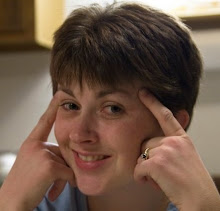This book was very interesting and was put together as a grouping of essays written by Orr. Writing the book in this way made it seem like a quick read because instead of long chapters you're reading shorter essays, which makes it easier to read one or two at a time and then move on to something else in order to come back later. Good for the busy reader!
Orr's essays revolved around the way in which we put education and care for creation together. Orr also encourages us to think about education in different ways. For instance, he says that education is itself environmental education and he talks about the way in which we can foster these ideas with the curriculum we teach and even the way in which we construct the buildings where we teach and learn inside of.
One of Orr's conjectures that I thought was interesting was his proposal that colleges and universities should be ranked on the basis of 5 criteria that have to do with care of creation rather than things like their peer reputation, SAT scores, endowment sizes, books in the library, and publications by faculty and so on. Orr lists these 5 things as what we should be ranking schools on: "how much the institution consumes or discards per student", including paper, water, materials, and energy; "the institution's management policies for materials, waste, reclycling, purchasing, landscaping, energy use, and building"; whether or not "the curriculum provide the essential tools for ecological literacy"; whether or not "the institution uses its buying power to help build sustainable regional economies"; and finally, "on the basis of what their graduates do in the world" (Orr 89-92).
What this system of ranking schools does (and the rest of Orr's essays in general do) is tell us to re-frame our ideas of the status quo. We go along with things because it's teh way we've always done them and we fuel our society with the ideas of money as everything, social reputation as the top of the wish list and we fail to help our communities look around them and see where we can change things to better our world and our communities. According to Orr and this book, this is where we fail ourselves and our students; we fail them and ourselves in that we refuse to change things in order to make things better and we assume that if we keep going like we are that everything will right itself, which is a giant myth.
Subscribe to:
Post Comments (Atom)

No comments:
Post a Comment